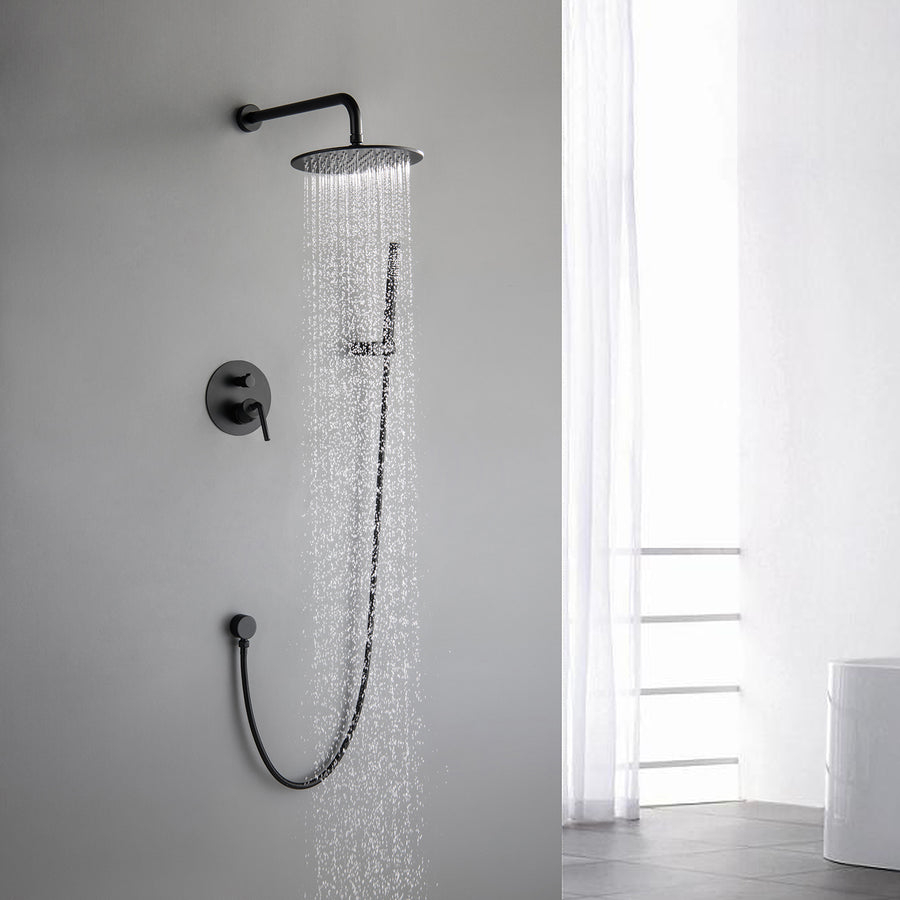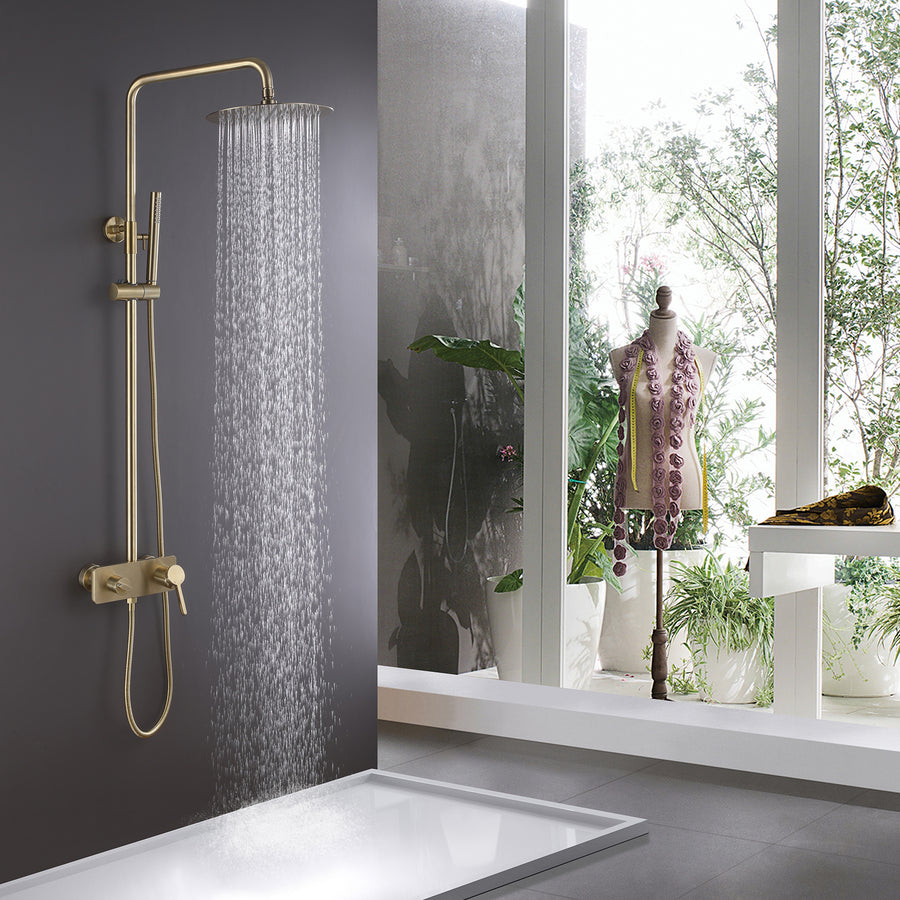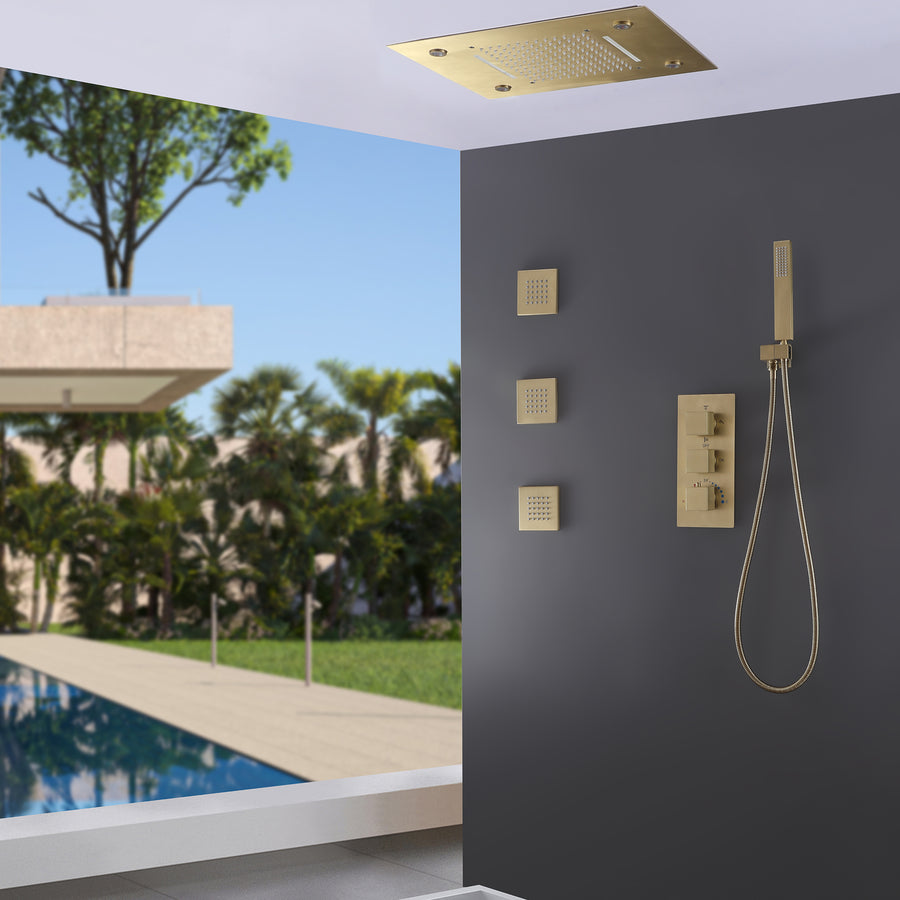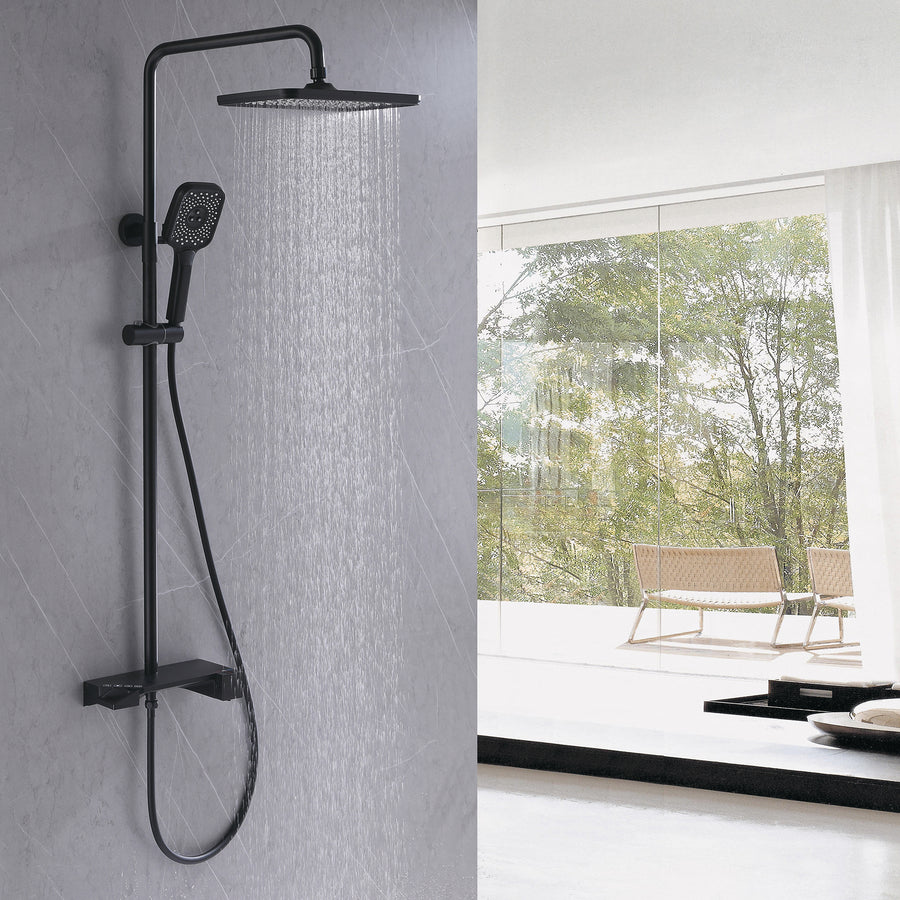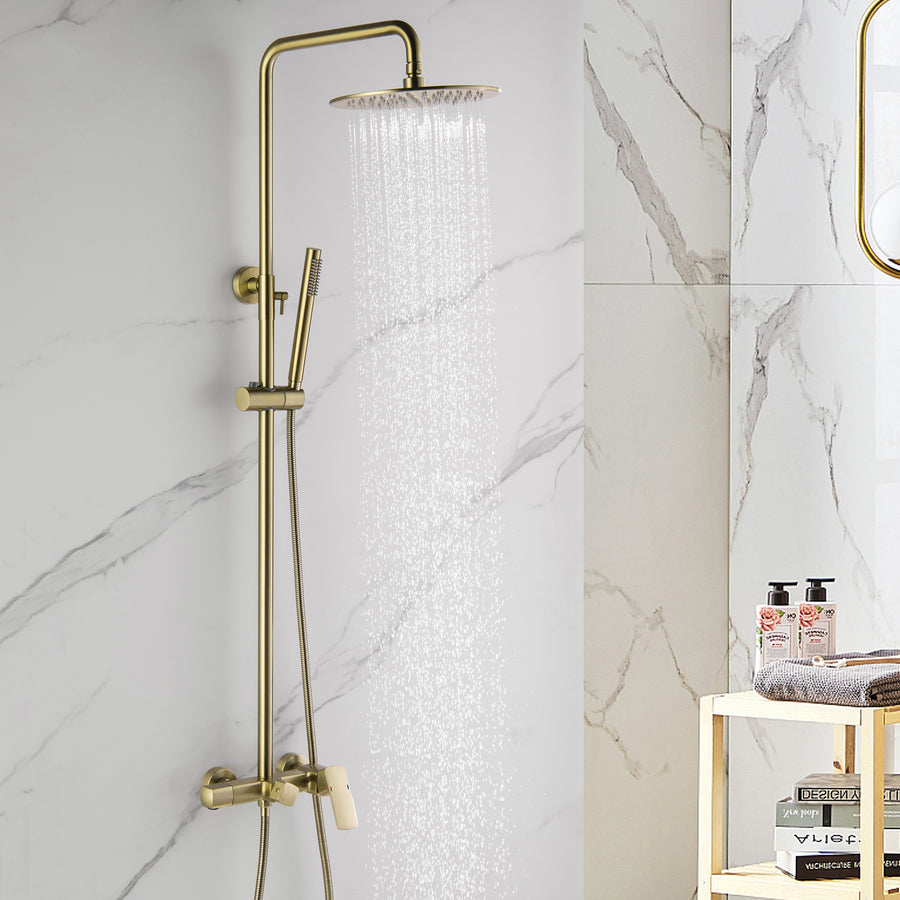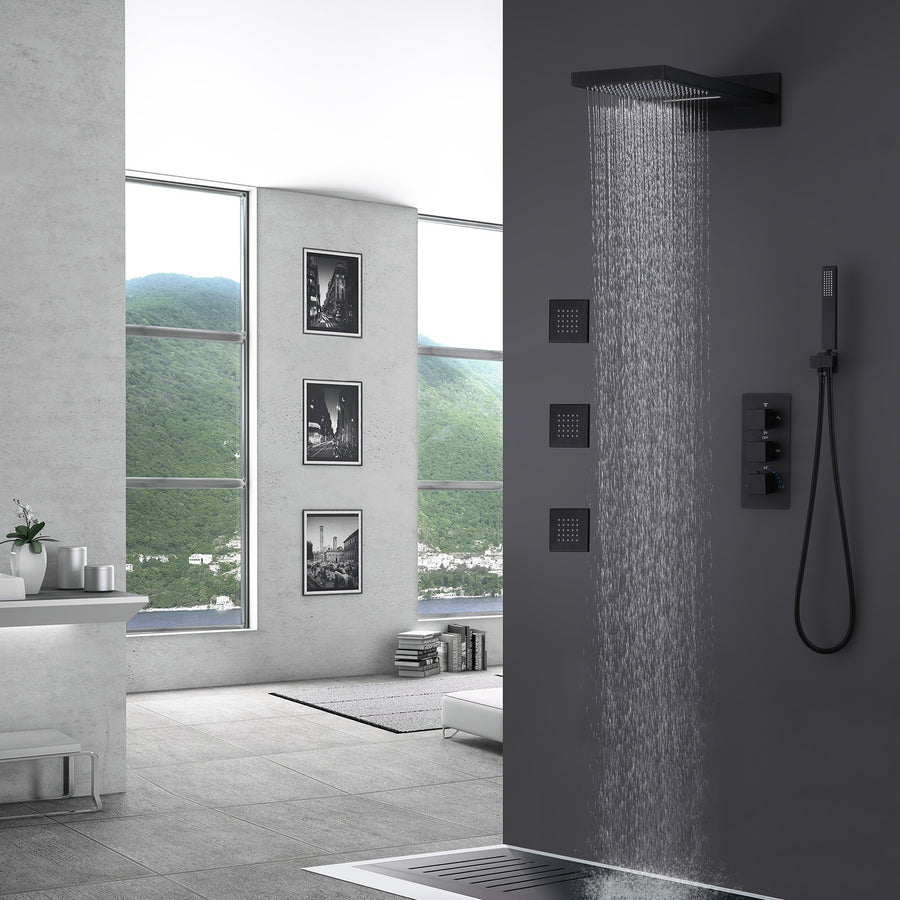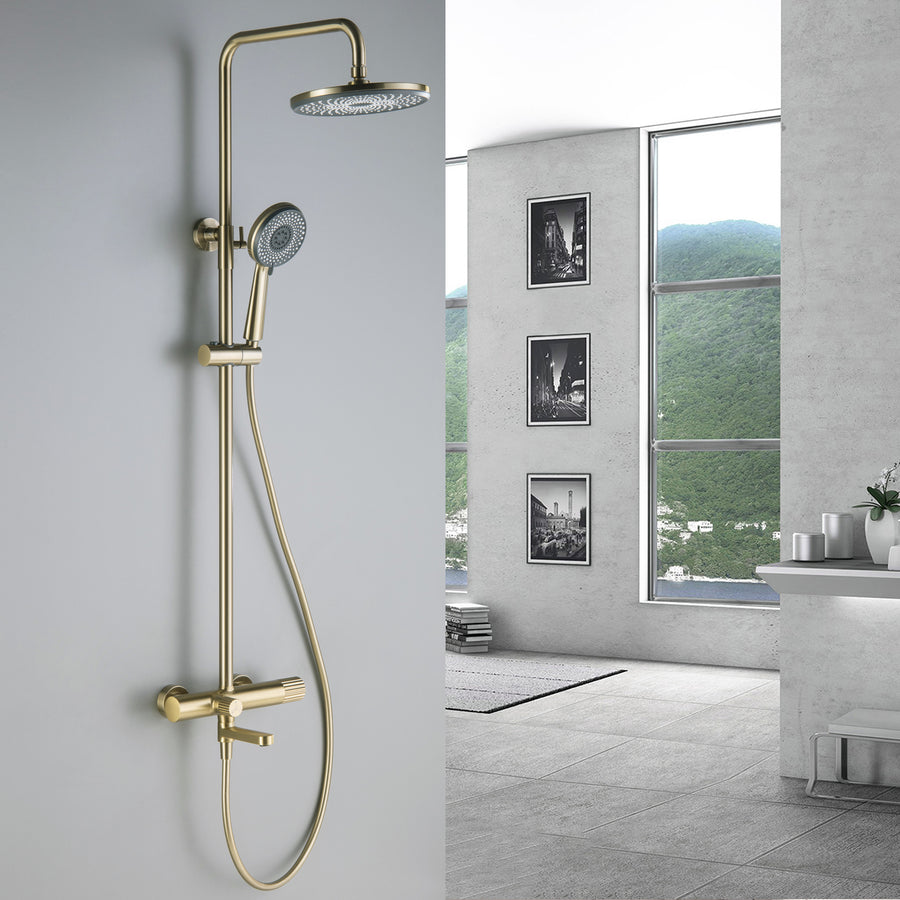Introduction
Showering has evolved beyond mere functionality to become a luxurious and rejuvenating experience. The choices available in the market can be overwhelming, and one crucial decision is whether to opt for a shower panel or a shower system. In this guide, we'll delve into the intricacies of both options to help you make an informed decision for an enhanced showering experience.
Shower panels are a contemporary solution designed to elevate your shower experience. These panels typically consist of a set of features integrated into a single unit, promising a spa-like feel within the confines of your bathroom. The materials, design, and water delivery systems vary, offering a customizable experience. Some panels even come with additional features such as massage jets and temperature controls. While the sleek design and all-in-one functionality are enticing, it's essential to weigh the pros and cons.
Pros:
- Modern and aesthetically pleasing design
- All-in-one functionality for a streamlined look
- Additional features for a customized shower experience
Cons:
- Upfront cost may be higher
- Installation can be more complex
- Limited flexibility for future upgrades
Shower panels are an excellent choice for those who appreciate a modern, minimalist aesthetic. The sleek, integrated design provides a contemporary look that can complement various bathroom styles. The all-in-one functionality simplifies the shower experience, making it user-friendly for individuals who prefer a hassle-free setup.
However, it's crucial to consider the initial cost and installation complexity. While the upfront investment might be higher, the long-term benefits of a sophisticated shower experience can outweigh the initial expenses. Additionally, the limited flexibility for future upgrades should be weighed against the desire for a sleek and integrated design.
Shower systems, on the other hand, offer a modular approach, allowing you to customize your shower configuration according to your preferences. Components like showerheads, handheld showers, body sprays, and thermostatic controls can be combined to create a personalized shower experience. The flexibility and adaptability of shower systems make them a popular choice, but it's crucial to understand their pros and cons as well.
Pros:
- Modular design for customization
- Flexibility to upgrade or replace individual components
- Generally easier to install
Cons:
- Potential for a less streamlined appearance
- Higher cumulative cost when adding multiple components
- May require more maintenance due to multiple parts
Shower systems provide an excellent solution for those who value customization and flexibility. The modular design allows individuals to mix and match components to create a shower experience tailored to their preferences. The flexibility to upgrade or replace individual parts over time ensures that your shower system can evolve with changing needs and preferences.
While the modular design offers customization, it's essential to consider the potential for a less streamlined appearance, especially if a cohesive aesthetic is a top priority. The cumulative cost can also increase as you add more components, so budget-conscious consumers should carefully plan their ideal configuration.
Comparative Analysis
Now, let's compare these two options based on various factors:
Cost considerations: Shower panels often have a higher upfront cost, while shower systems may become more expensive as you add components. Consider your budget and long-term investment.
Installation complexity: Shower systems are generally easier to install, making them a practical choice for those who prefer a straightforward setup.
Maintenance and cleaning: Panels may have fewer components to clean, but intricate designs could pose challenges. Shower systems may require more upkeep due to multiple parts.
Customization options: Shower systems provide greater flexibility for customization, allowing you to create a tailored shower experience.
Energy efficiency and water conservation: Both panels and systems can be designed with energy-efficient and water-saving features. Consider eco-friendly options that align with your values.
Real-world Applications
To help you decide, let's explore some real-world applications:
Shower panels excel in:
- Modern, minimalist bathrooms
- Spaces where a sleek, integrated design is a priority
- Homes with a focus on contemporary aesthetics
Shower systems are preferable in:
- Larger bathrooms with space for multiple components
- Homes where customization and flexibility are priorities
- Situations where future upgrades or changes are anticipated
Making the Right Choice
Consider your individual preferences, bathroom size, and layout when making a decision. If you value a seamless, contemporary look and additional features, a shower panel might be the right choice. For those who prioritize customization and flexibility, a shower system offers the versatility you need.
Seek professional advice if you're unsure, and don't forget to check out case studies or testimonials from users who have made similar choices.
Future Trends
Shower design is an evolving field. Keep an eye out for emerging technologies, innovations, and sustainability trends that may influence your decision. The future promises even more exciting possibilities for enhancing your shower experience.
Conclusion
In the end, whether you choose a shower panel or system, the goal is to create a shower experience that suits your preferences and lifestyle. By understanding the nuances of both options, you can confidently make a choice that aligns with your vision for the perfect shower. Here's to unveiling the next level of shower innovations in your own home!


